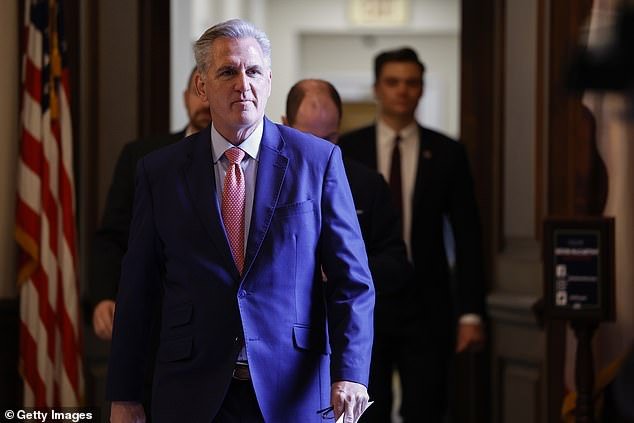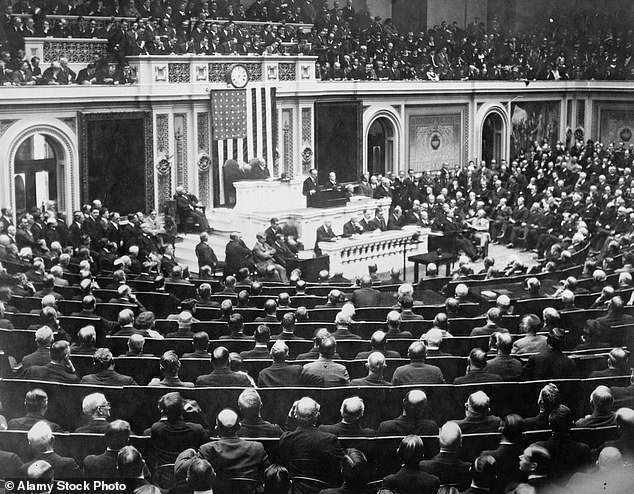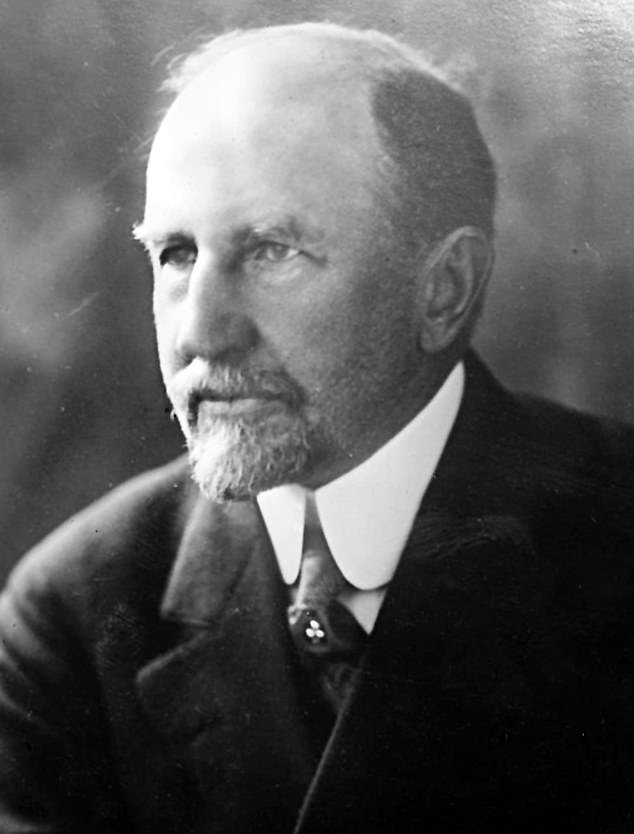In 1923, the Speaker of the House election took 9 rounds and in 1856, Congress was shut for 2 months
>
What happened when the Speaker of the House was NOT elected in the first round of the elections: in 1923, 9 votes were taken and in 1856, and Congress was paralyzed for two months.
- Rep. Kevin McCarthy suffers defeat on first speakers ballot
- After Biden and Harris, the Speaker is next in line to become president
- Currently, McCarthy does not have enough votes and the House cannot be organized until a leader is selected.
- The last speaker election that went beyond the first ballot was a century ago, when members made nine attempts to vote for Frederick Gillett (R-Mass.) for the position.
<!–
<!–
<!–<!–
<!–
<!–
<!–
It didn’t go as planned, at least for GOP leader Kevin McCarthy, who became the first majority speaker candidate in 100 years not to win an initial vote for the gavel after losing to 19 hardline Republicans.
McCarthy entered the chamber shortly after 12 noon, posed for photos and received a standing ovation after being nominated by third-ranking Republican Rep. Elise Stefanik of New York, who said he “has got what it takes.” needs” to lead House Republicans.
But Rep. Andy Biggs, R-Ariz., a former conservative leader of the Freedom Caucus, quickly nominated a speaking challenge. At least count, at least 19 fellow Republicans had abandoned McCarthy.

House Minority Leader Kevin McCarthy (D-CA) walks into the Chambers of the US Capitol House on December 23, 2022 in Washington, DC.
McCarthy continues to face stiff opposition from a small number of conservative lawmakers calling themselves ‘the Never Kevin Caucus’ in a 222-213 majority that could well botch his nomination, and they did. The final vote for McCarthy in the first election was 203, 15 votes short of being declared the winner.
The NKs are led by Biggs, Florida’s Matt Gaetz, Virginia’s Bob Good, Montana’s Matt Rosendale and South Carolina’s Ralph Norman, among others.
The last speaker election that went beyond the first ballot was in 1923, when members made nine attempts to nominate Frederick Gillett (R-Massachusetts) to the position. The all-time record for the length of a speaker’s vote was in the mid-1850s, when lawmakers took nearly two months and 133 votes before choosing Nathaniel Banks, also of Massachusetts.
In the Chamber’s 234-year history, 14 speaker votes have required a multiple ballots according to the Washington Post. With the rise of the two-party system, only two have come after 1856.
The House can change the election rules allowing a simple majority vote to become the speaker, but this could backfire on Republicans as Rep. Hakeem Jeffries (DN.Y.) could win a majority vote, meaning that both the House and the Senate would be under Democratic control, a highly unlikely scenario.


Frederick H. Gillett of Massachusetts was re-elected Speaker of the House of Representatives on December 5, when Republican insurgents voted for him for the first time after a deadlock two days earlier on December 14, 1923.


The last speaker election that went beyond the first ballot was in 1923, when members made nine attempts to nominate Frederick Gillett (R-Mass.)
Since the outcome of the House leadership election is not a done deal, a speaker could be elected today after multiple attempts, delayed by days or weeks, or Congress could change the rules to get a simple majority.
Until a speaker is chosenCheryl Lynn Johnson, Secretary of the United States House of Representatives and a Pelosi appointee, will preside over the House.
The outgoing speaker will usually join the successor in the speaker’s chair, where they will pass the gavel as a nod to the peaceful transition of power from one party leader to another. This time, it will be Pelosi, the California Democrat who has held the deck for the past four years.
